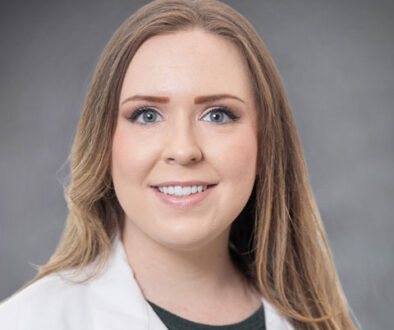How Does an ENT Doctor Help You?
Otolaryngologist. The word is a mouthful and not one you want to run into during a spelling bee: An otolaryngologist (pronounced: Oh-toe-lair-in-gol-o-gist) is more commonly called an ENT, or ear, nose and throat doctor.
SO, WHAT’S AN ENT AND HOW CAN ONE HELP YOU?
Otolaryngology is the medical specialty focused on treating diseases of the ear, nose and throat. It’s the oldest medical specialty in the United States, according to the American Academy of Otolaryngology. ENTs treat a wide variety of ailments, including:
ALLERGIES
ENTs not only prescribe medicine for allergy problems, they also determine the cause of the allergies. We often use immunotherapy (“allergy shots”) to help patients build up a tolerance to allergens and reduce troublesome symptoms.
EAR PROBLEMS
ENTs treat ear infections and remove impacted wax or objects that have become lodged in the ear. They also treat patients experiencing tinnitus (ringing in the ears).
BALANCE DISORDERS
Why do ENTs treat balance disorders? Because balance is controlled by tiny structures within the inner ear. An otolaryngologist can determine the underlying cause of your dizziness and provide relief.
HEARING LOSS
ENTs work closely with audiologists to determine the cause and best treatment options for hearing loss.
SINUS PROBLEMS
ENTs help patients with a wide variety of sinus problems, including chronic rhinosinusitis (a sinus infection), and fungal sinusitis.
DISEASES OF THE LARYNX (VOICE BOX)
Ear, nose and throat doctors repair the larynx and are instrumental in detecting (and removing) head, throat and mouth cancers.
NASAL CONGESTION
Otolaryngologists not only treat nasal congestion, they examine the underlying cause of the problem. Congestion can be caused by allergies, sinus infections, or structural problems with the nose, such as a deviated septum.
SPEECH AND SWALLOWING DISORDERS
ENTs work with speech-language pathologists to diagnose and treat voice disorders, swallowing problems and speech difficulties due to strokes or head and neck cancers.
SLEEP APNEA AND SLEEP DISORDERS
Restricted airways can lead to a potentially dangerous condition called sleep apnea. Ear, nose and throat doctors may prescribe a sleep study to determine the best course of treatment.
SURGERY
ENT doctors are also skilled surgeons. They correct issues that arise from deformities, trauma, or other problems with the ears, nose and throat. They perform different types of surgeries such as:
- Tonsillectomies (tonsil removal)
- Myringotomies (insertion of “ear tubes” to alleviate chronic ear infections)
- Plastic surgery for both cosmetic and medical purposes. Plastic surgery includes rhinoplasty (a “nose job”), a blepharoplasty (treatment to correct drooping eyelids) or corrective reconstructive surgery following skin cancer removal. Patients with breathing problems can benefit from surgery that widens nasal passages or repairs a deviated septum.
- Sinus surgery: ENTs may perform a balloon sinuplasty to open narrow or blocked sinus passages.
- Removing nasal polyps
- Removing tumors – particularly those of the head, neck, and thyroid gland
HOW ARE EAR, NOSE AND THROAT SPECIALISTS TRAINED?
Typically, ENTs must complete up to 15 years of college and training in to be certified by the American Board of Otolaryngology. This includes an undergraduate degree, medical school, and at least five years of post-graduate specialty training. Some ear, nose and throat doctors may decide to specialize further. These specialties include concentration on allergy treatment, sleep disorders, and treating diseases of the nose (rhinology). Still others may choose to focus on pediatric otolaryngology.
ENTs can also select one of several surgical areas for their focus. These may include head and neck surgery, cosmetic plastic surgery, or reconstructive surgery.
WHO CAN BENEFIT FROM VISITING AN EAR, NOSE AND THROAT SPECIALIST?
A wide variety of people can benefit from the services of an ENT. This not only includes those who have sleep problems due to snoring / sleep apnea, but anyone with chronic sinus infections, hearing loss, or seasonal allergies. Children who have repeated ear infections may find relief through treatment or surgery performed by an ENT.
Some insurance companies may require a referral from a primary care physician before seeing an ENT, so be sure to check with your policy representative. For more information on ear, nose and throat doctors, and for valuable patient information, visit the website for the American Academy of Otolaryngology- Head and Neck Surgery.




